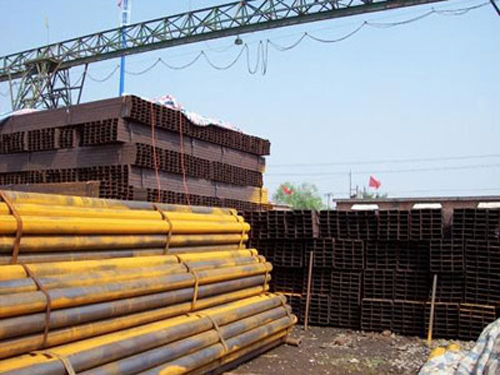Analysis: Austerity Experience in China's Iron and Steel Industry
After a year of credit tightening and efforts to cool down the real estate industry, the restrictive policies of the Chinese government began to have a significant impact on the real economy. The raw materials industries such as steel, cement, and copper are most affected. These industries are closely related to the construction industry and the cooling real estate market. Due to weak Chinese demand, Chinese steel output fell to its lowest level since January in mid-October. Last month, the price of global iron ore, a key raw material for steelmaking, also fell by more than 30%. “We feel that winter has arrived,†said Zhang Changfu, vice president of the China Iron and Steel Association (CISA), an industry association with the government. "The market has seen a major turnaround. Orders are gradually drying up." Zhang Changfu pointed out that the new orders for shipyards are plummeting by 43% year-on-year in the first nine months of this year, indicating that the market environment is deteriorating. Twelve months ago, China began implementing austerity policies. Policymakers raised interest rates and bank deposit reserve ratios to curb inflation and slow growth. These policies are now beginning to affect raw materials. "The effect of monetary policy usually has a lag of 6 months to 9 months," said Ding Shuang, an economist at Citi. "We saw more and more cumulative effects in the third quarter. We think that this effect will even be even greater in the fourth quarter." Ding Shuang predicts that the result is that the fourth quarter China's economic growth rate will be from the third quarter. The 9.1% fell to 8.4%. As 40% of the steel industry's demand is closely related to China's increasingly cool real estate industry, the steel industry has become one of the industries hit hardest. Due to the government's restrictions on home purchase and credit tightening policies, housing construction has slowed down. The China Real Estate Index System (CREIS) shows that residential stocks are equivalent to more than 11 months of sales, the highest level in several years. At the same time, residential real estate prices fell by 0.23% in October, the largest drop this year. This, in turn, means that steel demand is unexpectedly weak, even if the total demand for steel in China will continue to grow this year. With the recovery of Chinese demand after inventory reduction, this week's iron ore prices have stabilized after falling sharply last month. Some steel companies either find it difficult to obtain ** or suffer from high borrowing costs. “In the past, banks were chasing steel companies and rushing to lend them to you,†said Qu Xiuli, deputy secretary-general of the China Iron and Steel Association. “But now it is the steel companies that are chasing banks.†Qu Xiuli said that the tightening of credit has increased the cost of steel and other industries, and these industries usually have high levels of debt. "The issue of liquidity is not only a problem of finding a bank, but also a problem of capital turnover. Our high debt ratio makes the cost of capital high." Difficulties in credit have also affected iron ore traders. Some traders must repay the banks before the end of the year, and they are forced to reduce iron ore reserves in October, causing a sharp drop in the price of iron ore. At the other end of the iron ore trade, buyers have started to slow their purchases because the tight credit environment is prompting them to reduce their inventory. Baosteel, China's second-largest steelmaker, said last week that some customers have requested delayed shipments. Other heavy industry companies also warned that they expect the risk of default by customers will increase, or require customers to pay in cash when products such as refined copper are shipped. “We can't sell anything,†said an Inner Mongolia construction steel trader. “In the next two months, our (steel) inventory will increase,†he explained at the same time that his company will continue to purchase steel on the basis of long-term contracts with large steel companies. However, in order to deal with the sluggish demand, many small steel companies that are more sensitive to prices have begun to cut output last month. The slowdown in demand has led some economists to predict that China’s raw material demand may peak in the near future. However, the more bullish analysts insist that the tightening effect is limited to a few industries and believes that the policy shift may soon be ushered in. Wang Jin, an economist at Guotai Junan Securities, said that after the decline in industrial profits in September and weaker purchasing managers' index data in October, it is just around the corner to relax credit. He said, "We expect to introduce more neutral policies, including the possible reduction of bank deposit reserve ratio in the fourth quarter of this year." Utility Knife,Abs Utility Knife,Aluminium Utility Knife,Plastic Grip Utility Knife Shangqiu Yida Measure Tools Co., Ltd , https://www.hnyidatool.com
